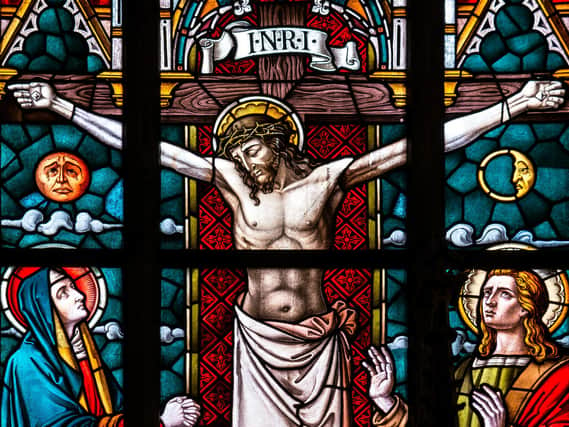Must read of the week: Jesus and Women: Beyond Feminism


This article contains affiliate links. We may earn a small commission on items purchased through this article, but that does not affect our editorial judgement.
Jesus and Women: Beyond Feminism by feminist theologian Dr Niamh M. Middleton provides a long-overdue dissection of institutional sexism within the Church, and how women must lead the way in restoring gender equality. This is an essential read for all Christians, and anyone concerned with the question of gender equality.
By Timothy Arden
Recent decades in Britain have been witness to a dramatic social change, with the nation rapidly transitioning from a faith-based society to post-religious secularism.
The situation is now so dire that, according to the British Social Attitudes (BSA) survey, only one per cent of people aged 18-24 now identify as Church of England.
The same study found that the number of people identifying as Christian has fallen by nearly half since the 1980s while more than 50 percent of the public now say they do not belong to any religion at all.
Christianity, then, is clearly a religion in crisis, marked by the ongoing dwindling of congregations, both within the Catholic and Protestant Churches.
The reasons for this are complex but one of the biggest impactors must be the institutional sexism of the Church, which has been deeply embedded within its power structure for almost—but not quite—as long as Christianity has existed.
This outrageous sense of male chauvinism, of gender-based discrimination and masculine privilege, has largely been stamped out of wider society as it strives towards true equality, and in the #MeToo era has been publicly called out and decried within those sectors that have been slow to catch up, such as the entertainment industry.
Yet despite this, it still finds sanctuary within one institution: the Christian Church.
The Catholic Church is the worst offender in this regard, with its continued prohibition on female priests, but the Church of Anglican is certainly not free from sin. This stubborn refusal to move with the times has, understandably, alienated women, and has led them to turning their backs upon organised religion—a critical blow, given that it has always been women who have been the main torchbearers for faith, who have baptised their children into the faith, and who have made sure their families attend church each week.
This pressing and timely issue is the focus of fascinating new book Jesus and Women: Beyond Feminism, which has just been released in paperback through The Lutterworth Press.
Its author, theologian and retired Dublin City University academic Dr Niamh M. Middleton, has been at the forefront of calls for Church reform, adding her voice to those of a multitude of Christian scholars, both male and female, around the world.
It is the resistance, bordering on outright dismissal, that these pleas for gender equality have met with within the Church hierarchy that is, no doubt, the driving force for her book, which offers an engrossing, incisive dissection of Church sexism fuelled by righteous indignation.
Women and Jesus is part theological criticism, part social critique, combined with history and science. Fascinating and educational wherever you sit in the spiritual spectrum, every chapter contains a salvo of sound reasoning.
Every argument is backed by impressive biblical research but, importantly, is written in a clear, understandable way that everyone can readily grasp without any prior familiarity with religious scripture, history or dogma.
Its core concept is that the outmoded stance of the Christian Church concerning gender equality is fundamentally unchristian, because it is in stark contrast to the teaching of its founder, Jesus Christ.
As Dr Middleton demonstrates abundantly, supported by a wealth of Bible passages, Jesus displayed an inclusive attitude towards women, seeing them as just as worthy and spiritual as male brethren.
You could, in a sense, declare him the first feminist, extolling the virtues of femininity at a period in history when they were largely regarded as the inferior sex, viewed with suspicion, with disgust, and treated as little more than objects to possess.


Dr Middleton explains how, in ancient Judea, women were controlled through an imbalanced legal code that forbade them to engage in premarital sex or adultery, and them alone. Men, essentially, could do as they please.
While constrained by how far he could go to challenging the status quo, for fear of bringing violent reprisals onto his female followers—of which there were many—he did defend women, and celebrated them and female qualities in his teachings.
The author surmises that it was only due to the social backlash and real danger that could befall his female disciples that prevented Jesus from appointing any women apostles.
That being said, Dr Middleton argues persuasively that disciple Mary Magdalene—who is said to have been the first person to whom Jesus appeared after his resurrection—can be considered the ‘apostle to the apostles’.
As she explains, the risen Christ told Mary to go to his male disciples and tell them the good news of his resurrection. This, she says, was the turning point of Christianity, changing it from a small reformist Jewish movement into a new religion that would eventually become the world’s largest.